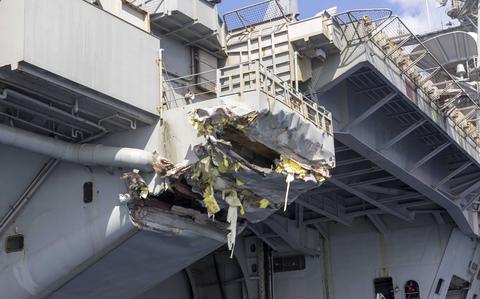Sikorsky Awarded For H-53 Helicopter Upgrades | EU Boosts Moldova's Defense | Israeli Companies Enter US Military Engine Market
For more on this and other stories, please consider purchasing a membership.
If you are already a subscriber, login to your account.
Americas
Sikorsky Aircraft Corp. has received a $100 million contract modification to improve and maintain H-53 helicopters. The work includes software updates, cost reduction analysis, and extending the helicopters’ service life. This project will benefit the Marine Corps, Navy, and foreign military customers. The work will mainly take place in Stratford, Connecticut, and is set to finish by March 2028.
Tyonek Technical Services LLC has been awarded a $46 million contract to provide on-site depot maintenance for Air Force Special Operations Command’s C-130 fleet. The work, which includes support for weapons systems and subsystems, will take place at Hurlburt Field, Florida. The contract is set to run until March 30, 2035, with initial funding of $4.8 million already allocated. This agreement will help ensure the continued readiness and availability of these specialized aircraft, which are crucial for tactical airlift missions and can operate from rough, unprepared airstrips.
Middle East & Africa
Two Israeli companies have announced plans to set up defense factories in the United States to produce jet and rocket engines for the US military. Bet Shemesh Engines, known for civilian jet engines, is expanding into the military market. Another company, Rafael, is partnering with Kratos to build a rocket engine plant in Indiana. These moves mark a significant entry into the US defense sector for these Israeli firms, capitalizing on growing demand for advanced military technologies.
Europe
The European Union has committed to providing Moldova with €60 million ($62.95 million) for defense spending in 2025. This funding, announced by European Council President António Costa, is part of the EU’s ongoing support for Moldova’s security and defense capabilities. The €60 million allocation is specifically for defense expenditures this year. Moldova has already received €37 million through the European Peace Facility. President Costa emphasized that the funding is intended to “ensure peace.” This support comes as Moldova, a small agricultural nation bordering Ukraine, seeks closer ties with the EU, particularly in security and defense matters. The country aims to join the EU by 2030 and has been strengthening its relationship with the bloc. The funding is part of a broader EU strategy to support Moldova’s defense sector. In recent months, the EU has adopted several assistance measures to provide non-lethal equipment for mobility, air surveillance, electronic warfare, and logistics. These measures reflect the EU’s commitment to enhancing Moldova’s security and resilience, especially in light of regional tensions following Russia’s invasion of Ukraine in 2022.
EU Commission leader Ursula von der Leyen on Tuesday proposed a Rearm Europe Plan she said could see member states mobilise up to €800 billion to finance a massive ramp-up in defence spending, hours after Washington suspended all military aid to Ukraine putting pressure on the bloc to increase its own assistance. “We are in an era of re-armament, and Europe is ready to massively boost its defence spending, both to respond to the short-term urgency to act and to support Ukraine, but also to address the long-term need to take on more responsibility for our own European security,” the European Commission president said. The five measures she outlined, which she details in a letter to EU leaders ahead of an extraordinary summit on Thursday, include a “new instrument” to raise €150 billion on the markets to then provide that money as loans to member states that want to invest in capabilities including missile defence, artillery systems, missiles and ammunition, drones and anti-drone systems or in military mobility.
Asia-Pacific
British engineering company BMT and Japan Marine United (JMU) have won a contract to develop a next-generation High Speed Landing Craft for Japan’s Self Defense Forces. This collaboration combines BMT’s maritime design expertise with JMU’s shipbuilding capabilities. The new vessel will be based on BMT’s Caimen Family of Landing Craft, which has been successful in international markets. It features a length of approximately 30 meters and a highly efficient tri-bow hull design, allowing it to reach speeds exceeding 20 knots. The craft is designed for enhanced seakeeping and beaching performance, with extensive capacity for carrying vehicles and troops. The project represents a significant partnership between the UK and Japan in defense technology. BMT will provide the design from the UK, while JMU will handle production design and construction at its facilities in Japan. This new landing craft is expected to significantly enhance Japan’s maritime operational capabilities, offering swift and safe transportation of personnel and equipment under various conditions. The contract was awarded by Japan’s Acquisition, Technology & Logistics Agency (ATLA), highlighting its importance for the country’s defense strategy.







